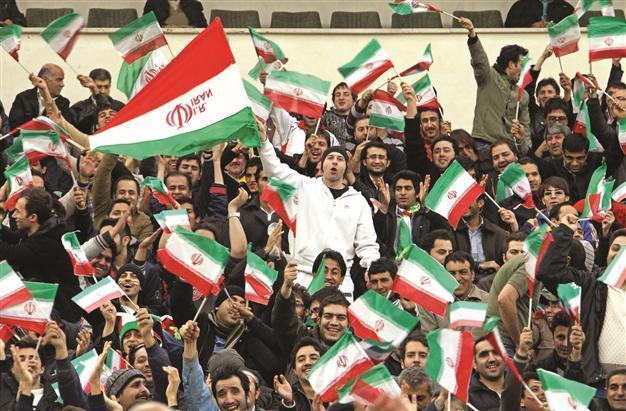Ahmadinejad loses not one but in two elections
James M. Dorsey Hürriyet Daily News

AFP Photo
Iranian President Mahmoud Ahmadinejad’s waning political fortunes suffered a double blow this week: the conservative victory in parliamentary elections and the re-election of Iranian Football Federation (IFF) president Ali Kaffashian, in defiance of the Iranian leader’s efforts to ensure his defeat.
Mr. Ahmadinejad’s candidate in IFF elections when he first ran for president four years ago, Mr. Kaffashian’s performance has done little to ensure that Iranian football helped the hands-on, football playing Iranian leader polish his tarnished image. On the contrary, Iranian football has been going from bad to worse under Mr. Kaffashian’s leadership.
On Mr. Kaffashian’s watch, the football pitch has repeatedly turned into a venue for protest against Mr. Ahmadinejad’s government, particularly in the national capital Tehran and Tabriz, the capital of East Azerbaijan. The IFF president is also the fall guy for the failure of successive national coaches to deliver decent performances, even though Mr. Ahmadinejad takes a direct interest in their appointment.
The coaches failed to take
Iran to World Cup finals or triumph in Asian Cups, dashing Mr. Ahmadinejad’s hopes that the national team’s resulting prestige would rub off on him. However, Iran still stands a chance for qualifying for the 2014 Brazil World Cup.
Nonetheless, Iran’s Olympic women’s team was disqualified last year, for wearing the hijab, a headdress favored by observant Muslim women players, in violation of world football body FIFA rules. Adding insult to injury, Mr. Kaffashian last year withdrew his candidacy for a seat on the Asian Football Confederation (AFC) executive committee.
Tough rivals
As a result, Mr. Kaffashian’s re-election campaign faced opposition from two candidates: one backed by the government, the other by the Revolutionary Guards.
Ironically, the fact that Mr. Kaffashian decided to stand as a candidate despite the loss of support of his former sponsors and his willingness to challenge the government publicly may have worked in his favor. In statements to the media, Mr. Kaffashian made no bones of the fact that the government was interfering in the IFF election to engineer his defeat. Iran was briefly suspended by FIFA in 2006 for interfering in the federation’s elections.
Mr. Kaffashian drove his newly found assertiveness home by vowing in his campaign to improve the financial and commercial position of clubs and ensure that the federation would enjoy greater independence in his second term. That is a tall order in a country where the majority of clubs are owned by government-related entities, people close to the Revolutionary Guards have been joining boards, and the president sees the federation as one of his soft power tools.
It would also mean ensuring that clubs meet FIFA criteria for membership in a league, which include financial independence, ownership of a stadium and the fact that its owners have only one club in the league – all would significantly reduce the government’s influence on football.
All of this is hardly good news for Mr. Ahmadinejad, who according to a 2009 US diplomatic cable disclosed by WikiLeaks concluded that his efforts to use football work had achieved only limited success.
The president went as far as to lift the ban on women watching football matches in stadia in 2006, but was overruled by Supreme Leader Ali Khamenei in a rare disagreement.Documenting the leader’s active interest in football, the cable reported that he pressured the football federation to lift its suspension of star Ali Karimi so that he could play in 2010 World Cup qualifiers, engineered the 2009 firing of Ali Daei as coach, and ensured that Mr. Daei’s successor, Mohamed Mayeli-Kohan, lasted all of two weeks in the job so that his own candidate would be appointed.
Middle East,

